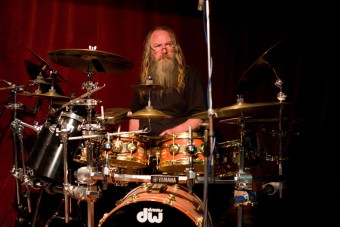Obrázek z fotogalerií

Nejbližší vystoupení/akce
Platón: Sokratova obhajoba (Prievidza)
Divadelní představení
Platón: Sokratova obhajoba (Bratislava)
Divadelní představení, V-Klub
Platón: Sokratova obhajoba (Bratislava)
Divadelní představení, V-Klub
Poslední publikace/nahrávky
LAMA (2025): v Kde. Polí5
Digital album
KONOPÁSEK, Z. (2024 - v tisku): Sbohem příteli, naše cesty se rozešly: O interpretativní analýze, počítačích a programu ATLAS.ti. Biograf (78), 56 odst. Dostupné na adrese http://www.biograf.org/
Diskusní příspěvekKONOPÁSEK, Z. (2024): Ať spolu vědci dál nesouhlasí. In: Š. Kučera, ed: Jen další konec světa: 33 rozhovorů o antropocénu, "věku člověka", vedl Štěpán Kučera. Brno: Druhé město. Str. 116-122
kapitola v knizePoslední záznamy z blogu:
Dvouletou fámu založili...
O tom, jak to tehdy bylo a že Roman Štefl s tím měl mnohem méně společného, než to v některých pramenech vypadá
[celý text]Konopásek kontra Latour: Barša má vidiny pistolníků a z vlastních kvérů se mu ještě kouří
Reakce na Baršův text "Pragmatická sociologie emancipace: Latour vs. Boltanski" a zároveň doplněk k mému textu "Věda a politika, vpravo, vlevo"
[celý text]Hudební objevy z let 2018-2020
V sekci Hudba -> Co poslouchám je nově výběr pro mne nejzajímavějších desek posledních let
[celý text]Lítáme v tom, někteří beznadějně
Odpověď na recenzi Radka Kubaly, v níž hodně místa věnuje textu, na kterém jsem se podílel
[celý text]Black. Jim Black.
Můj oblíbený bubeník jamuje v jakémsi malém portugalském klubu
[celý text]This is (not) This Heat
Zebulon, Los Angeles (March 21, 2019) a Cafe Oto, London (February 10, 2018)
[celý text]Z dálky pořád mává kohout piv, Radomile
Právě vychází na pěkně vypraveném cédéčku kompletní koncert Dvouleté fámy z pražské Chmelnice (březen 1989) - je to to nejlepší ze spolupráce s Radomilem Uhlířem, který minulý rok umřel: "Z dálky mává kohout piv (živě na Chmelnici, 23.2. 1989)", Guerilla Records (GR 159-2)
[celý text]